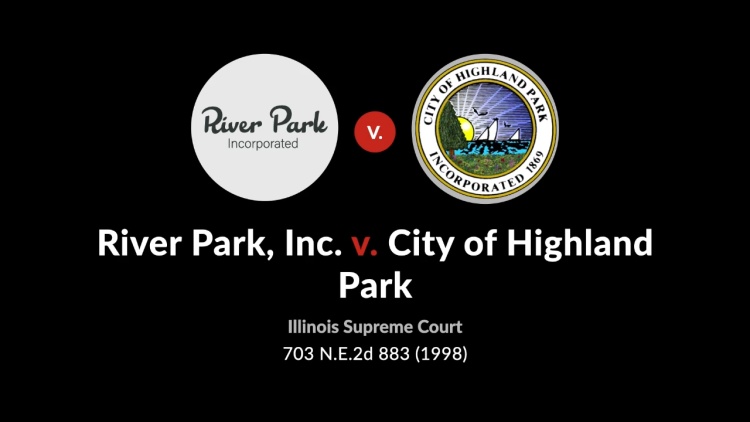River Park, Inc. v. City of Highland Park
Illinois Supreme Court
703 N.E.2d 883 (1998)
- Written by DeAnna Swearingen, LLM
Facts
Spatz & Company and River Park, Inc. (collectively, Spatz) (plaintiffs) wanted to develop 162 acres of land in the City of Highland Park (the city) (defendant). Spatz petitioned the city for a change in the zoning ordinance and approval of the development plans. In 1989, the city approved, pending the filing of the final engineering plans. Spatz alleged that the city then purposefully delayed issuing the final approvals in order to force Spatz into foreclosure so the city could buy the property at below market value. In 1993, Spatz sued the city in the United States District Court for the Northern District of Illinois under 42 U.S.C. § 1983 for violations of their constitutional due-process rights. The court held that Spatz had failed to demonstrate that their due-process rights were violated and dismissed the complaint with prejudice. Spatz appealed to the United States Court of Appeals for the Seventh Circuit, but the dismissal was affirmed. In 1994, Spatz sued in Illinois circuit court for “(1) tortious interference with a business expectancy, (2) breach of an implied contract, and (3) abuse of governmental power.” The remaining counts were dismissed. Spatz requested $50 million in compensatory and punitive damages. The city moved to dismiss the lawsuit on the ground that it was barred by res judicata. The trial court granted the motion. The appellate court overturned the dismissal because the claims asserted in the state court were different from those asserted in the federal suit. The city appealed to the Illinois Supreme Court.
Rule of Law
Issue
Holding and Reasoning (McMorrow, J.)
What to do next…
Here's why 907,000 law students have relied on our case briefs:
- Written by law professors and practitioners, not other law students. 47,100 briefs, keyed to 996 casebooks. Top-notch customer support.
- The right amount of information, includes the facts, issues, rule of law, holding and reasoning, and any concurrences and dissents.
- Access in your classes, works on your mobile and tablet. Massive library of related video lessons and high quality multiple-choice questions.
- Easy to use, uniform format for every case brief. Written in plain English, not in legalese. Our briefs summarize and simplify; they don’t just repeat the court’s language.






